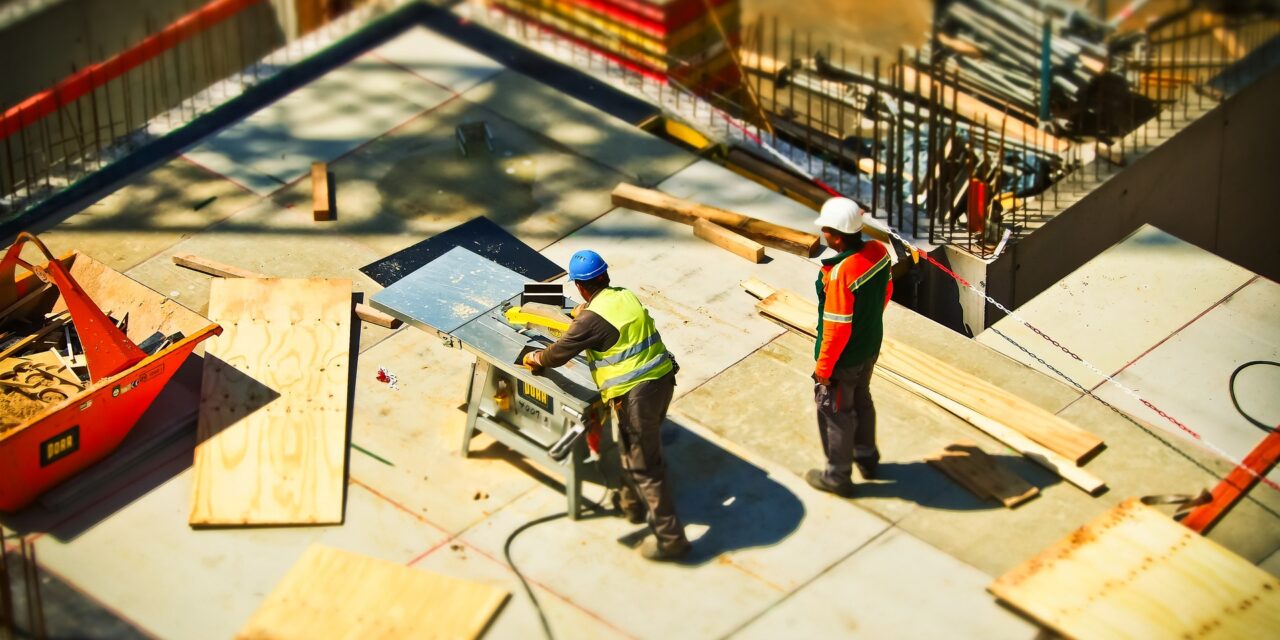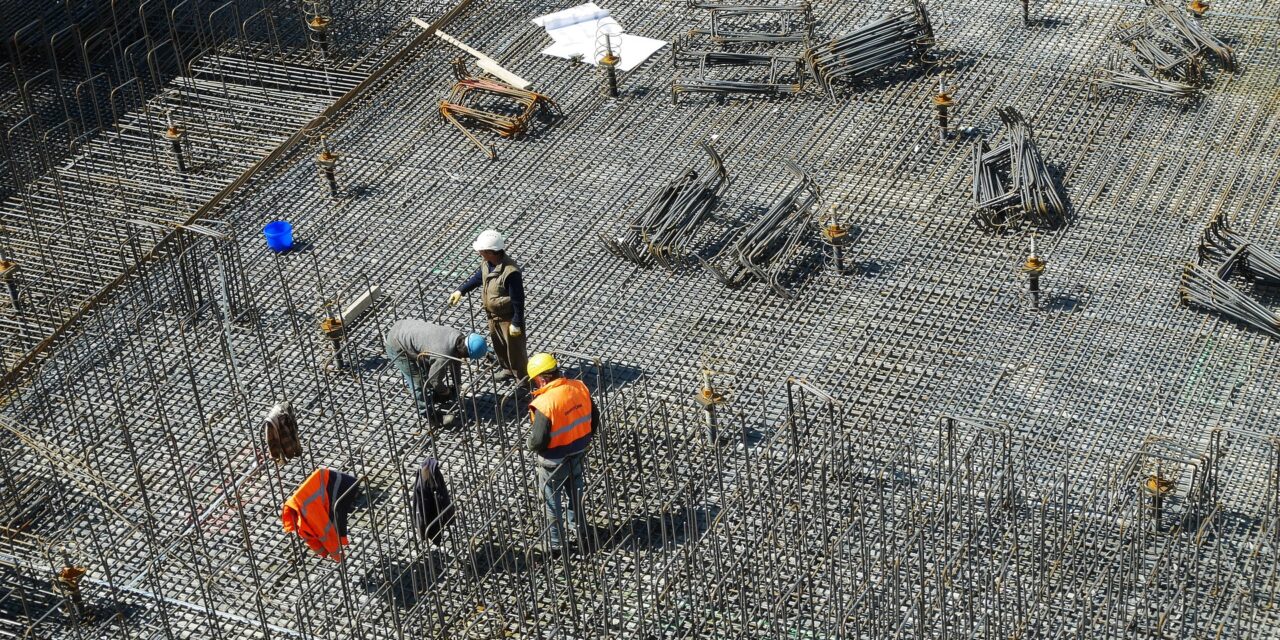
Keeping building projects on track is a challenge for construction companies, with an estimated 90% of large-scale construction projects being delivered late, and almost two thirds of these by at least two months. Additionally, as 1 in 4 construction projects are delivered more than 250 days late, with 10% delayed by up to a year, these challenges are all too familiar across the sector; and are likely set to remain. Further, these delays can have knock-on implications, as the cost of manufacturing and transportation can change, affecting overall costs and profitability too.
A significant contribution to these delays lies in the delivery of building materials to sites. When materials are delivered late, only in parts, inaccurately, or not at all, construction projects can potentially grind to a halt, forcing companies to waste time and money on contracted labour that would use the materials. Builders merchants often play a crucial role in minimising these delays, through ensuring the timely and accurate delivery of construction materials to the correct location when they are required.

Andrew Tavener, Head of Marketing for Fleet Solutions at Descartes Systems explains how builders merchants can take advantage of proven software solutions such as accurate delivery scheduling, route planning and customer notifications to streamline their delivery operations, which will enable them to overcome many of the challenges associated with construction site deliveries; ensuring that the delivery of building products take place on-time and in full, and deadlines are met.
Co-ordinating multiple deliveries to sites
Delivery delays can derail a project, resulting in costly overruns and missed deadlines, so keeping a project on schedule requires timely delivery of supplies and availability of contractors. However, builders merchants often need to coordinate many logistical factors with multiple stakeholders in large-scale construction projects. This includes the general contractor, subcontractors and suppliers. Coordinating deliveries with all of these stakeholders is time-consuming. If not carried out effectively, they will cause delays. This is on top of the added challenge of managing multiple deliveries of different products that construction sites need to receive daily. This can prove even more challenging on a larger site, especially one with restricted or multiple access points, or rural locations.
Delays and increased costs also arise due to material damage or loss. What’s more, changes to a project scope or schedule might result in last-minute changes in the delivery of materials, which is challenging to manage. Additionally, with inventory management being important on a construction site, to ensure that materials are available when required, and to prevent overstocking or running short, goods may potentially need to be delivered on the day they are required. Moreover, site storage may be limited too – so deliveries might need to be coordinated around the availability of the storage space required, while also considering how deliveries and the storage of construction materials affects the health and safety of employees on sites. Achieving this involves controlling the flow of delivery vehicles and ensuring that materials are unloaded, stored and handled in a safe and timely manner.
The Solutions
An answer to this multi-faceted problem for builders merchants can be found within delivery scheduling and route optimisation software. This technology enables them to optimise the delivery of building products and materials to construction sites with several benefits. For instance, modern and proven route optimisation software allows suppliers to plan the most efficient delivery routes through analysing real-time traffic data to calculate the shortest, fastest or most economical routes for deliveries, helping to reduce delivery times, miles driven, fuel consumption and CO2 emissions. The software will also plan routes that avoid hazardous areas or roads with low bridges, improving the safety of drivers and reducing the risk of incidents and delays.
The real-time updates and alerts provided by route optimisation software helps to improve communication between planners, drivers, dispatchers, and site managers. Automated notifications from the software will help coordinate deliveries with multiple stakeholders – it can notify a construction site that a delivery is due, the expected time of arrival at the site, or any delays due to unforeseen circumstances such as roadworks or road traffic incidents. Deliveries can also be tracked in real-time through GPS tracking, allowing organisations to monitor their progress live on a map, and to make any necessary operational adjustments in real time. This provides construction teams and planners with an oversight of delivery status; and an informed ability to locate vehicles without having to telephone the driver to find out where they are. This enables builders merchants to offer a better customer service – one that enables them to be proactive in communications with construction sites about delivery times and any potential delays.
Delivery scheduling software is powerful for builders merchants because it can quickly and efficiently schedule and manage multiple deliveries, ensuring that materials are delivered to the right place at the right time. In addition, route optimisation software will help reduce delivery errors by providing clear, accurate delivery instructions to the driver. While proof of delivery functions enable goods to be checked onto and off the vehicle, ensuring no goods are missed when either loading or unloading the vehicle.
The Benefits
Implementing these technologies offers the potential to transform the delivery process and optimise operations, generating multiple benefits for builders merchants and their customers alike. Firstly, route optimisation and delivery scheduling software will increase project efficiency by facilitating on-time material delivery. Delays will be minimised and construction projects will be kept on track with accurate delivery times.
Proactive customer communication notifications reduces the risk of delays caused by incorrect orders or other issues. All parties can be kept informed about the delivery status of goods. This will ultimately lead to reduced costs by minimising late and / or inaccurate deliveries which cause project costs to increase when projects are delayed.
Optimising delivery processes will lead to improved relationships with construction firm stakeholders too. Accurate delivery times and delivery notifications contribute to better communication with customers, with a view toward building trusted relationships between the suppliers and construction site project managers. If site managers do not need to keep checking where their deliveries are, their time can be better spent managing other important aspects of their construction project. As a result, site managers will be able to manage their projects more efficiently.
The visibility of accurate delivery times and improved customer service will also allow construction teams to be more responsive to unloading materials when they are delivered. This will help reduce the time a delivery vehicle is at site, releasing it to continue with deliveries or return to base faster – and it will play a role in increasing productivity for all parties.
Conclusion
As builders merchants face a multitude of challenges in their efforts to deliver construction materials on time and in-full to sites, delivery scheduling and route optimisation software will help logistics and planning teams to optimise their delivery processes, improve customer service and decrease delays.
From automating and calculating the most efficient delivery routes, to enhancing customer communication through real-time updates, improving communication with stakeholders, managing multiple deliveries, reducing fuel consumption and improving health and safety, builders merchants can look to these technologies to streamline and improve their own internal processes to benefit customers.
This will ultimately generate a positive result for construction site customers. Builders merchants will be able to better plan and deliver construction materials when they are required and be in a position to proactively manage any exceptions. This all leads to a more trusted customer relationships, an overall improved service, and hopefully, and ideally, projects that meet deadlines and cost expectations.





